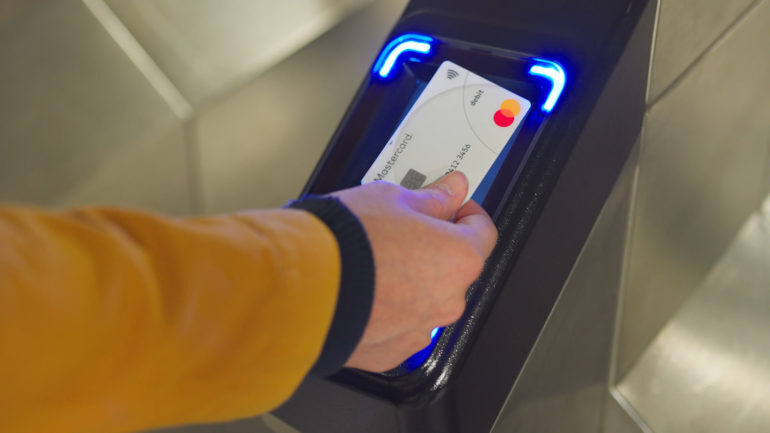
CEO of Jumia: Freelancers play crucial role in Jumia’s success
Abdellatif Olama, CEO of Jumia Egypt, said freelancers play a crucial role in the operational ...

MasterCard has taken the lead to using sustainable materials in manufacturing cards within the framework of ongoing efforts to ditch single-use plastics.
Mastercard’s sustainable card offerings are available to consumers in over a dozen countries globally and more than 60 financial institutions have issued cards with approved materials made from recyclable, bio-sourced, chlorine-free, degradable and ocean plastics. These institutions include Crédit Agricole and Mauritius Commercial Bank, as well as Santander, which will issue cards shortly. With this resource, banks can learn more about these alternatives, connect to card manufacturers and ultimately augment their own sustainability initiatives with a systemic change to their supply chain.
This initiative is a new milestone in a multi-year effort that will lead to the launch of Mastercard’s global certification scheme for approved sustainable cards. It builds on the Greener Payments Partnership (GPP) formed by Mastercard and card manufacturers Gemalto, Giesecke+Devrient and IDEMIA in 2018 to establish environmental best practices and reduce first-use PVC plastic in card manufacturing. Six billion payments cards are produced each year, typically from PVC. These cards are replaced on average every three to four years, with discarded cards going to landfills across the world.
“Our goal is simple: we want to help banks offer more eco-friendly cards to consumers, and we are taking concrete steps to bring about that change. This way, everyone benefits – it’s better for the environment, it’s better for business and it meets evolving consumer needs,” says Ajay Bhalla, president of Cyber & Intelligence, Mastercard.
“We’re excited to see our efforts gaining traction in so many parts of the world and hope more organizations will join us, as we collectively use our power for good to address these urgent environmental challenges.”
Mastercard continues to invest in new technology and resources to bring insight to the global market in support of sustainable choice across all payment rails. Mastercard’s Global DigiSec Lab in the UK, which works to maximize product innovation and security investments, has invested in technology that analyses the material makeup of a card to assess environmental claims on behalf of the industry, so that customers can be confident that any Mastercard they are issuing from a sustainable material has been evaluated and independently verified. In addition, the Lab is investing in leading academic research related to environmentally friendly ways to recycle existing plastic cards.
The company has an extensive track record in creating products, services, partnerships and experiences that enable consumers to make sustainable consumption choices that are better for the planet – easily, intuitively, to their benefit.
Mastercard is committed to building a more inclusive digital economy that works for everyone. That includes connecting 1 billion people and 50 million SMEs to the digital economy by 2025 and supporting 25 million women entrepreneurs grow their businesses.
“We know our customers are looking for more sustainable products and looking for ways to effect positive change in the world. This approach has enabled us to not only deliver on a consumer need but also offer a product that’s in line with our corporate sustainability values,” says Marco Briata, Head of Digital & Payments – Crédit Agricole Italia.
“MCB is fully committed towards protecting the environment and our local heritage. We are converting our cards portfolio to Polylactic Acid (PLA), which reduces traditional PVC use by more than 80%. In addition, every time that a customer uses our Mastercard debit card, we make a contribution to the Mauritian Wildlife Foundation to save threatened Mauritian species through the restoration of entire ecosystems,” says Stephanie Ng Tseung, Head of Cards at MCB.
Abdellatif Olama, CEO of Jumia Egypt, said freelancers play a crucial role in the operational ...
Managing Director at Avanz Capital Egypt Haytham Wagih highlighted the need for more partnerships between the ...
Ahmed Alsharif – Founder and CEO of Averroes Ventures – said startups have needed ideas ...


اترك تعليقا